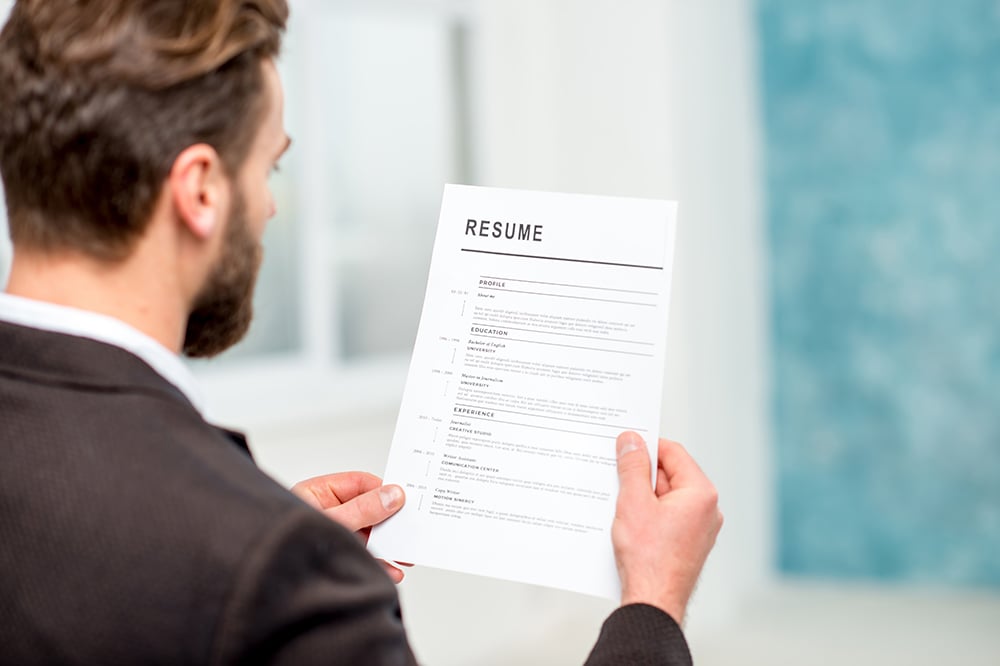A Step-By-Step Guide to Writing a Standout Cover Letter

A cover letter adds context to your CV or resume. It allows you to showcase your skills and experience to the recruiter by introducing you in a memorable and personal way for a job application. Often, a cover letter and resume are considered to be the same. However, they are different. While a resume highlights your professional details, a cover letter tells the recruiter the personal side of your career. Here, you will learn how to write a cover letter, the dos and don’ts when writing a cover letter, and a few samples of cover letters.
How to Write a Good Cover Letter?
It’s extremely rare to be the only applicant when applying for a role. In all cases, there are potentially hundreds of applicants or more. That means your cover letter is one in hundreds that the recruiter will read. Therefore, it becomes critical to write a cover letter that can:
- Impress the recruiter
- Communicate why you are an ideal candidate for the role
- Makes you stand out from the rest
Below is a step-by-step guide on how to write a good cover letter.
Step 1: Research and Brainstorm
Research the role and its requirements before you start writing your cover letter. Read the job description and try to determine the following:
- Which professional skills can you highlight in your cover letter, and how?
- How has your experience prepared you for this role?
Once you have understood what the role entails, brainstorm the most effective way to communicate your suitability to the recruiter.
Brainstorming is the key part of the cover letter writing process. It helps you determine all the possible topics to include in your cover letter and ways to prove your competency for the role.
Step 2: Personalise a Warm and Professional Greeting
The first thing that a hiring manager notices in your cover letter are whether you have addressed it to them personally. A generic “Good morning/evening sir/madam” wouldn’t always work. You will need to put in extra effort to find the recruiter’s name. It’s not always easy to find the recruiter’s name, but it’s worth the time.
You can find the recruiter’s name on the company’s website or their social media handles. For instance, you can check the company’s LinkedIn profile to track down the recruiter’s name.
However, there will be times when these efforts will not yield results. You can use a generic greeting like “Dear Hiring Manager or Dear (Company name) Team” when you cannot find the hiring manager’s name.
Step 3: Craft an Opening Paragraph That Intrigues Your Readers
Often readers refer to a book’s summary before buying it. Similarly, a recruiter makes hiring decisions based on the first two sentences of the cover letter. Remember that the hiring manager is reading lots of cover letters, and most of them contain almost similar content.
If your cover letter doesn’t captivate the hiring manager on the first go, you could get overlooked.
You can grab the recruiter’s attention by starting with an interesting fact about yourself. Below is an example to make you understand better.
Here is an introduction paragraph for the position of a film critic:
I pretty much spent my childhood at the movies, snacking on popcorn and cheering for Shah Rukh Khan with my grandfather. It’s that passion that’s shaped my career- from understanding films to pursuing film studies at my university to interning at the most popular multiplex chain. And my passion has led me to apply for this position at your company.
Another way to hook the hiring manager to your cover letter is by highlighting instances when your job skills came in handy. To understand better, let’s look at an introduction paragraph of a marketing manager:
Through my experience in marketing, I am familiar with the mindset necessary to develop high-quality projects. As a marketing manager at (previous company’s name), I’ve been part of many thought-provoking campaigns for EdTech and FMCG. But I never imagined I would be using my interpersonal skills to communicate with French people on our yearly trip to Paris.
Just make sure that your opening sentence matches your job description.
Step 4: Demonstrate Your Strengths and Relevant Skills
Your cover letter must ‘show’ your strengths and abilities. Therefore, instead of listing your strengths and skills, use real-life instances to explain them.
For instance, if you are applying for the role of Content Manager, here’s how you can showcase your content writing skills to get the job:
In my previous job, I wrote copy for email blasts, social media posts, content for blogs and emails. Creating exciting content for multiple platforms has prepared me for this position.
Step 5: Use Power Words to Show Your Interest in the Role
Throughout your cover letter, use words that communicate your enthusiasm for the kind of work you do or would love to do. For instance, when highlighting your past achievements, use action words like “transformed”, “redefined”, “demonstrated”, “endeavoured”, and “enacted”, to show your enthusiasm.
Take a look at these two statements to understand how the use of words can make a difference, and convey your point to the hiring manager.
- I was a manager to a team of marketing executives.
- I headed an enthusiastic bunch of marketing freshers.
With words like “headed” and “enthusiastic” you can portray a more dynamic picture than words like “manager”, and “team of marketing executives”.
Step 6: Ask for the Interview
Although it is awkward to ask for an interview, you must do it. Try to ask in the last paragraph before signing off. Here are a few ways to phrase the interview request in your cover letter:
- I want to help great campaigns perform better, and you want to help great brands rethink their marketing strategy. Let’s do both, with me as your marketing manager. My resume is attached, including links to my work and all contact details. I can’t wait to talk further!
- I have attached my resume with the cover letter and would welcome the chance to meet with you and discuss this further.
- I’d appreciate the chance to discuss the position and your needs for the role. I hope you will consider me for this job. Please contact me at (phone number) or (email address) to discuss this further.
The Dos and Don’Ts When Writing a Cover Letter
Here are the dos you need to keep in mind when writing your cover letter:
- Keep the cover letter objective. That is, present the facts with action-oriented words. Remember that you’re just demonstrating why you are the best candidate for the role with a cover letter.
- Make sure to have another person read your cover letter and give constructive feedback before sending it to the recruiter. This can be your friend, partner, parent, or anyone else who knows you well enough. This can help you determine where to add or remove the information and how to accurately present yourself in the cover letter.
- Write a fresh cover letter for each job. Although it is easier to copy-paste the cover letter you wrote for your last application, most employers want to see if you’re excited about a position. Therefore, it is important to create a custom cover letter for each position.
Here are the don’ts you need to keep in mind when writing a cover letter:
- Don’t use formal, stiff, or complex language. It will make it hard for the recruiter to understand your cover letter. Always keep the letter friendly and personal.
- Don’t write long cover letters. Keep it short with easy-to-understand language.
- Never apologise for the missing experience. When you don’t meet all the job requirements, don’t use lines like, “Despite my limited experience as a manager” or “While I don’t have direct experience in sales”. Instead, draw attention to your strengths and skills.
Cover Letter Examples
Here are two examples of cover letters a standard version, and a creative version. In the first example, you’ll see how specific phrases from the job description are used in the letter to enhance its quality. The second example takes a more creative approach to demonstrate your suitability for a role.
Cover Letter Example 1
Dear (Hiring Manager’s Name),
My name is (Your name) and I’m an experienced marketing manager with over (Number) years of experience. Recently, I came across your (Job title) posting on (Where you found the posting) and I’m writing to express my interest in helping your company achieve (Desired goal of the role).
In my current role as a marketing manager at (Company’s name), I’m responsible for (Responsibility 1), (Responsibility 2), and (Responsibility 3). The professional experience I have gained over the years has helped me to achieve (Achievement 1) and (Achievement 2).
Please contact me at (Insert phone number) or (Insert email address) as I would like to discuss the position in detail.
Sincerely,
(Your name)
Cover Letter example 2
Dear (Hiring manager’s name),
I was thrilled to see your ad for the position of Content Strategist at (Company’s name). I’m an experienced professional with (Work experience) in content strategy and planning. I have covered the latest trends of the past decade in the entertainment and lifestyle section. I’d love to put my skills to work for your company.
I have the following skills corresponding to your job description:
- Experience creating ranking content marketing strategies
- Practical knowledge of how to spot, create and market a viral content
- A proven track record of creating high-performing campaigns
- Content strategy certifications
I’d like to discuss the position with you in person or over a phone call. Please contact me via phone or email. Here are my contact details- (Phone number) and (Email address).
Regards,
(Your name)
If you have any more questions about how to ace interviews, here are some related articles that we’ve written on acing an interview:
- How to build a good resume?
- Group discussion tips for job interviews
- How to follow up after an interview?
- Five interview tips for your job interview
- How to prepare for a Job interview- a step-by-step guide
By now, you must have understood that an effective cover letter is more than summarising your resume. It emphasises who you are, highlights your skills and experience, and provides an insight into your unique personality traits that make you perfect for a role.
Want to improve your chances of getting a job offer? Enrol in career-improvement courses such as project management, product management, digital marketing, and human resource management courses offered by Emeritus.
Our programmes are offered in association with prestigious institutes like IIM, IIT, and ISB. These online courses are designed for fresh graduates and experienced professionals to equip them with advanced skills and knowledge related to their field.





